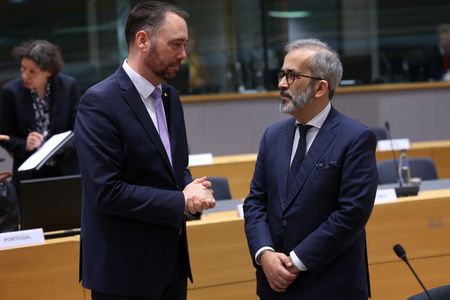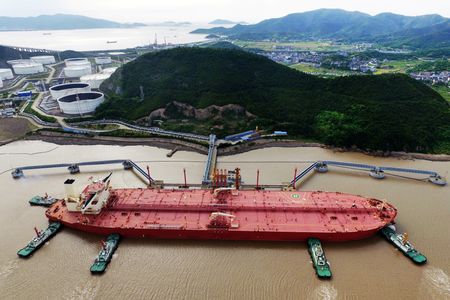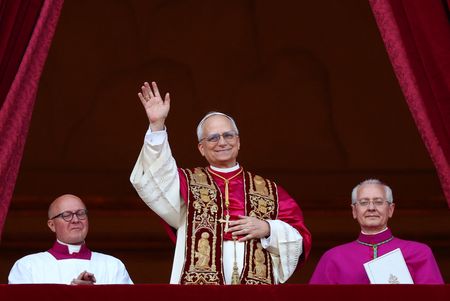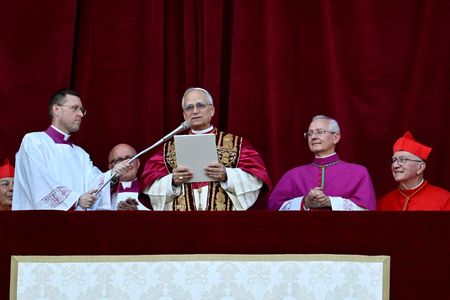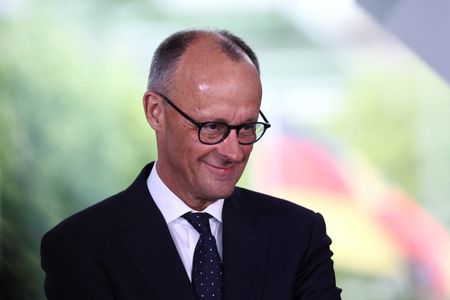WARSAW (Reuters) -Western governments should make legal commitments to pool the risk of keeping Russian central bank assets frozen if European Union sanctions are no longer in place, Belgian Foreign Minister Maxime Prevot told Reuters on Thursday.
Some 210 billion euros in Russian central bank assets are immobilised in the EU by sanctions. Belgium-based clearing house Euroclear holds most of that.
Officials fear that if the Russia-friendly Hungarian government breaks unity in extending the EU freeze of the assets in the coming months, the money would have to be returned to Moscow, putting at risk Western commitments to re-route the proceeds that the assets generate to Ukraine.
“If the European framework for those sanctions disappears, it would be necessary to take a new initiative, preferably at an international level,” Prevot said on the sidelines of an informal ministers’ meeting in Warsaw.
“We absolutely need to pool the risk,” he said.
The G7 group of nations – including the EU – agreed last year to use profits from frozen Russian assets to fund a $50 billion loan for Ukraine. The assets themselves, however, remain untouched.
Legal commitments could come from EU countries but also places such as the UK and Canada, the minister said, noting that the issue needs to be discussed with experts.
Some EU governments have said they are ready to consider seizing the frozen Russian assets. But a number of Western European countries have been wary, cautioning of legal challenges and undermining the euro as a reserve currency.
“The confiscation of the assets is not an option,” Prevot said.
“The risk is systemic, too big, in terms of financial consequences, the impact on the eurozone, possibly,” he added.
(Reporting by Lili Bayer; Editing by Alistair Bell)

